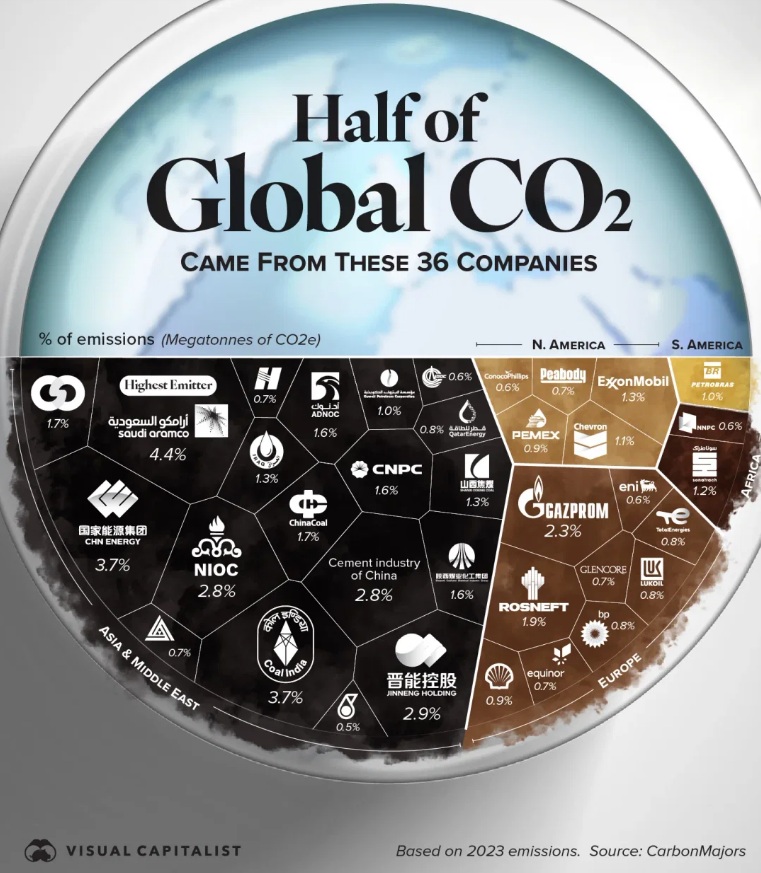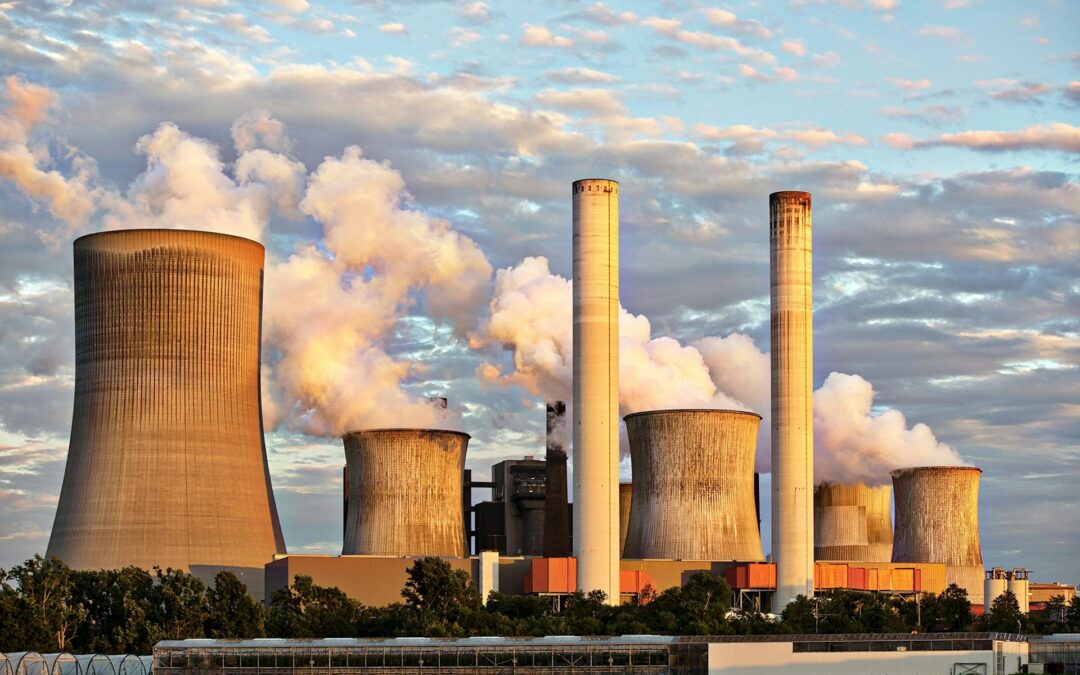A recent report by the Carbon Majors Project has revealed a stark reality: just 36 of the biggest corporate’s were responsible for half of the world’s air pollution in 2023. The findings highlight the overwhelming role of coal, cement, and oil producers in the global climate crisis.
Among these corporate giants, Saudi Aramco stands out as a leading contributor to greenhouse gas emissions. If the state-owned oil behemoth were classified as a country, it would rank as the fourth-largest polluter in the world, trailing only China, the United States, and India. This underscores the immense environmental footprint of the fossil fuel industry and its impact on global warming.
In the private sector, five major publicly traded oil companies—ExxonMobil, Chevron, Shell, TotalEnergies, and BP—collectively accounted for 5% of global carbon dioxide emissions from fossil fuels. Their contribution to climate change remains a pressing concern for environmental advocates and policymakers alike.

Asia & Middle East: The Heavyweights of Pollution
According to the report, companies based in Asia and the Middle East account for approximately 27.5% of global CO₂ emissions from corporate sources. Leading the charge is Saudi Aramco, the world’s largest emitter, responsible for 4.4% of all emissions. Other major polluters include CHN Energy (3.7%), Coal India (3.7%), Jinneng Holding (2.9%), and Iran’s National Iranian Oil Company (2.8%). Additionally, China’s cement and coal industries play a crucial role in the region’s emissions footprint.
Final Ranking by Continent (Corporate emissions contribution):
| Asia & Middle East (27.5%) 🏆 |
| Europe (6.8%) |
| North America (3.9%) |
| South America (1.9%) |
| Africa (0.6%) |
Europe and North America: significant but lower impact
In contrast, Europe contributes approximately 6.8% of global corporate CO₂ emissions. Russia’s Gazprom (2.3%) and Rosneft (1.9%) are among the most significant polluters on the continent, along with Swiss multinational Glencore (0.8%) and Norway’s Equinor (0.7%).
North America, home to energy giants such as ExxonMobil (1.3%), Chevron (1.3%), and Peabody Energy (0.7%), accounts for 3.9% of corporate CO₂ emissions. These figures underscore the ongoing reliance of the U.S. on fossil fuel production despite increasing climate commitments.
South America and Africa: lower but still notable emissions
In South America, Petrobras (1.0%) and Pemex (0.9%) contribute to the continent’s 1.9% share of global emissions. Meanwhile, Africa accounts for only 0.6%, with Nigeria’s NNPC (0.6%) being the region’s primary corporate emitter.
What this means for Climate action
The report’s findings emphasize the urgent need for corporate accountability in reducing global emissions. While individual efforts to combat climate change are vital, systemic shifts within industries—particularly in coal, oil, and cement—are critical.
As global leaders push for more stringent regulations and greener investments, the question remains: will these corporate giants take meaningful steps toward sustainability, or will profit continue to take precedence over the planet’s future?
| Entity | Total emissions (MtCO2e) | Percentage of global CO2 emissions |
|---|---|---|
| 1 | Saudi Aramco | 4.4% |
| 2 | Coal India | 3.7% |
| 3 | CHN Energy | 3.7% |
| 4 | Jinneng Group | 2.9% |
| 5 | Cement industry of China | 2.8% |
| 6 | National Iranian Oil Company | 2.8% |
| 7 | Gazprom | 2.3% |
| 8 | Rosneft | 1.9% |
| 9 | Shandong Energy | 1.7% |
| 10 | China National Coal Group | 1.7% |
| 11 | Abu Dhabi National Oil Company | 1.6% |
| 12 | CNPC | 1.6% |
| 13 | Shaanxi Coal and Chemical Industry Group | 1.6% |
| 14 | Iraq National Oil Company | 1.3% |
| 15 | Shanxi Coking Coal Group | 1.3% |
| 16 | ExxonMobil | 1.3% |
| 17 | Sonatrach | 1.2% |
| 18 | Chevron | 1.1% |
| 19 | Kuwait Petroleum Corp. | 1.0% |
| 20 | Petrobras | 1.0% |
| 21 | Shell | 0.9% |
| 22 | Pemex | 0.9% |
| 23 | TotalEnergies | 0.8% |
| 24 | QatarEnergy | 0.8% |
| 25 | Lukoil | 0.8% |
| 26 | BP | 0.8% |
| 27 | Glencore | 0.7% |
| 28 | China Huaneng Group | 0.7% |
| 29 | Luan Chemical Group | 0.7% |
| 30 | Equinor | 0.7% |
| 31 | Peabody Energy | 0.7% |
| 32 | Nigerian National Petroleum Corp. | 0.6% |
| 33 | CNOOC | 0.6% |
| 34 | ConocoPhillips | 0.6% |
| 35 | Eni | 0.6% |
| 36 | Petronas | 0.5% |

